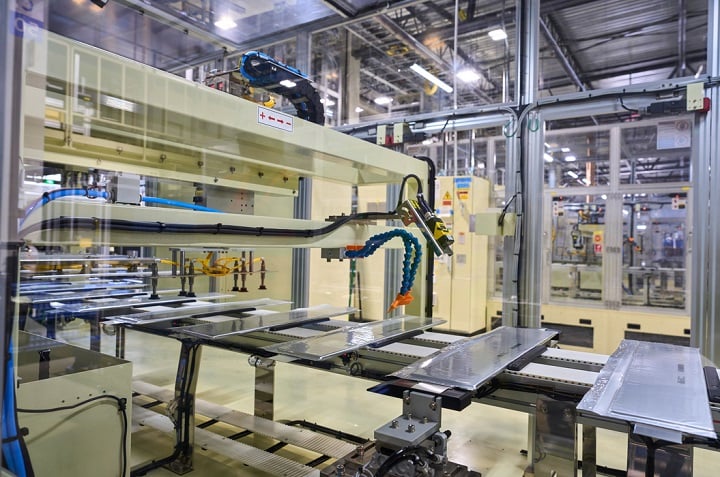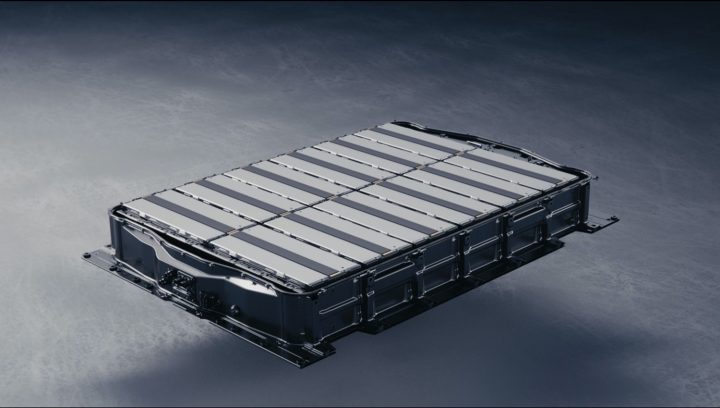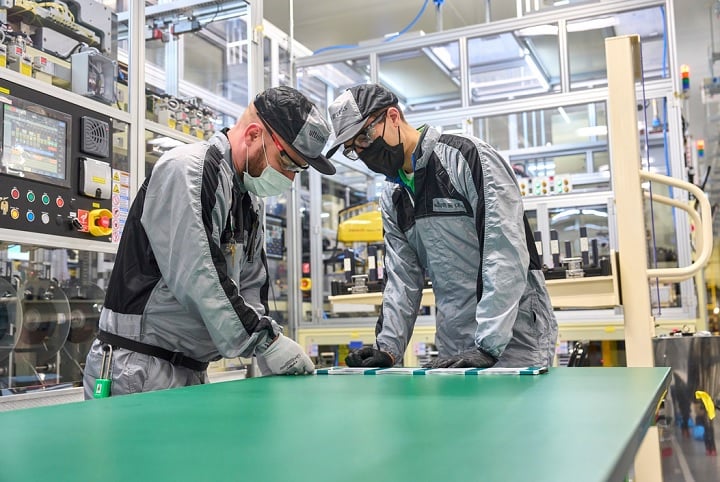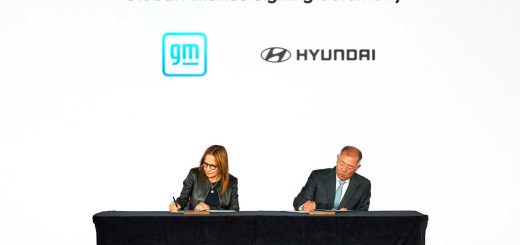GM has signed a new $18.6 billion deal with LG Chem to secure 500,000 tons of cathode materials from 2026 and 950,000 tons of cathode materials by 2030. The materials, supplied from LG’s Tennessee facility, will support the production of upwards of 5 million new EVs. General Motors CEO Mary Barra inked the new deal during a visit to Seoul, South Korea earlier this week.
Per a report from Bloomberg, Barra’s recent visit to Seoul also included a meeting with battery producer Samsung SDI Co.
LG’s cathode production facility in Tennessee was completed this past December, and has an annual capacity of 60,000 tons. The majority of the facility’s production will supply materials for new Ultium-powered vehicles, while a portion will supply battery components to Ford, Tesla, and Hyundai. The facility was announced in 2022 as part of a $3 billion investment on the part of LG Energy Solution, and is expected to create over 850 new jobs.
Back in November, General Motors marked the one-year anniversary of construction for the GM Ultium Cathode Active Material (CAM) battery plant in Quebec, Canada. The project, which was announced in March of 2022, is part of a partnership between General Motors and Posco Chemical, with a $500 million investment earmarked for the facility construction. The new plant is scheduled to open in 2025, with an initial goal of producing 30,000 tons of cathode materials annually.
General Motors aims to produce between 200,000 and 300,000 Ultium-based EVs in North America this year, pulling back on its original target of 400,000 EVs. The new all-electric vehicles will be produced across the Chevy, GMC, Cadillac, and BrightDrop brands. General Motors plans to follow consumer demand when it comes to setting EV production goals, with the automaker forecasting a rise in demand from roughly 7 percent during 2023, to at least 10 percent in 2024. General Motors says it’s still on track to reach an annual EV production capacity of 1 million EVs in North America by the end of the 2025 calendar year.
Subscribe to GM Authority for more General Motors business news, General Motors electric vehicle news, General Motors production news, General Motors technology news, and around-the-clock General Motors news coverage.

















Comments
This is great news. Just goes to show NOT to listen to MSM brought to you by Big, Oil, Big Pharma, Legacy Auto, and Dealerships that it is ALL BS that the demand for BEV’s is not there. GM would be in second place currently if they could figure out how to mass produce BEV’s. It is what it is so hopefully they learned their hard lessons.
My only gripe on this deal will be if GM continues with Pouch Batteries. Please oh please GM move on to Cylindrical batteries. Obviously LFP and even BYD Blade batteries.
This was a mistake. When will the EV push die? Does not work for most people. Your V8’s are better than anyone’s EVs. Let china invest in the throwaway tech that depreciates like mad.
Haha OK…
Seems like in the automotive industry, as far as cars are concerned, you basically cannot find any v-8’s any longer… Has to be a big truck, or industrial vehicle, or stationary gen set for a hospital to actually see a v-8.
Seems like GM’s answer to rediscovering PHEVs will be to import some junk from CHINA….. No thanks.
A bigger mistake would be to be fully reliant on China for our auto industry and mobility needs. I am just as skeptical as you as to how EVs will replace ICEs when they literally have nothing they do better except debatably less maintenance (and I mean DEBATABLY). And I get that we won’t be able to fully wean ourselves off the China supply chain but it starts with building up the competition and the alternatives to lessen the impact of an aggressor authoritarian government. Liberals complain about being reliant on Saudi oil (who isn’t an adversary as they depend on the US for security needs) but we are setting ourselves up for worse by being completely reliant on an adversary that has made no qualms of using economic coercion to get their way. This is a start and a necessity whether we agree with the EV future or not.